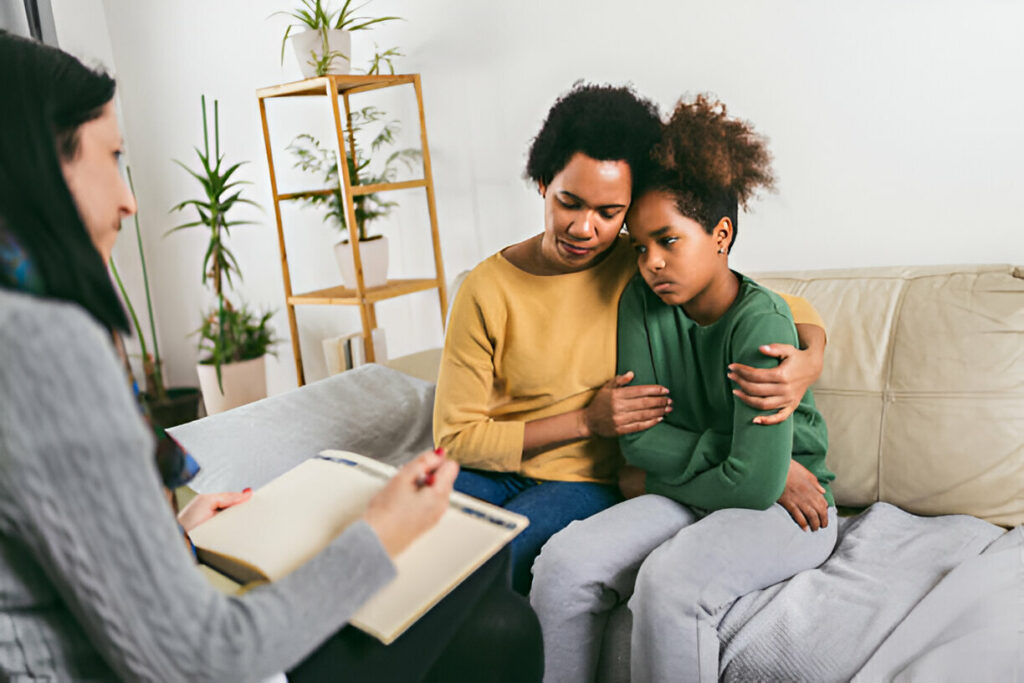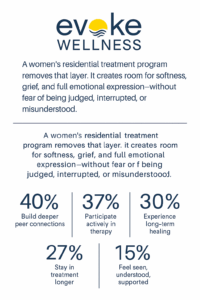When your daughter is in crisis, every decision feels like it carries the weight of her future. As a clinician, I’ve walked beside many families in this position—overwhelmed, terrified, and trying to choose the safest next step. If you’re researching treatment options, one of the biggest questions you may have is: Should we choose a women’s residential program or a co-ed facility?
Let’s explore the differences, the benefits of each, and how to determine which setting might offer the most supportive environment for your daughter’s healing.
The Environment Shapes the Experience
Environment matters more than most people realize. A women’s residential program provides a setting designed specifically for women’s healing. From the decor to the structure of daily routines, these programs are crafted to foster emotional safety, community, and self-reflection.
Without the presence of men, many women report feeling more relaxed and less guarded. There’s no pressure to put on a brave face or manage complex social dynamics. Instead, they can focus entirely on themselves.
Co-ed programs also aim to provide supportive environments, but the presence of both genders can sometimes complicate interpersonal dynamics. For younger women or those healing from relational trauma, that added layer can become a barrier rather than a benefit.
Why this matters: Safe spaces allow women to let their guard down. That emotional softening is what often leads to meaningful breakthroughs in therapy.
Gender-Specific Needs Deserve Gender-Specific Care
Women often enter treatment with different life experiences than men. They are more likely to have histories of complex trauma, eating disorders, or relational abuse. Their substance use may be tied to emotional pain, caregiving stress, or cultural expectations of perfection.
In a women’s residential program, these themes are not side conversations—they’re core components of care. Groups may focus on:
- Boundaries and people-pleasing
- Healing from emotional or sexual trauma
- Motherhood and reproductive health
- Body image and self-worth
While co-ed programs may touch on these topics, they often can’t go as deep. The presence of men can limit vulnerability. Certain topics may be avoided altogether due to discomfort or fear of being misunderstood.
Safety Isn’t Just Physical—It’s Emotional
If your daughter has experienced any form of abuse or trauma—particularly from men—a women-only space can provide a profound sense of safety. It’s not just about physical security; it’s about emotional permission to exhale.
In co-ed settings, women sometimes stay on alert. They may worry about how they’re perceived, edit their stories, or avoid sharing altogether. That vigilance can slow the healing process.
A women’s residential program removes that layer. It creates room for softness, grief, and full emotional expression—without fear of being judged, interrupted, or misunderstood.
Outcomes Improve When Comfort Increases
Research consistently shows that comfort and emotional safety improve engagement in treatment. And when women feel seen, understood, and supported, they are more likely to:
- Stay in treatment longer
- Participate actively in therapy
- Build deeper peer connections
- Experience long-term healing
Women in gender-specific programs often describe a sense of sisterhood that co-ed spaces rarely replicate. That bond can become a lifeline—one that continues long after treatment ends.
That said, not every woman needs or wants a gender-specific environment. Some feel empowered in co-ed spaces, especially if they have strong boundaries, no trauma history related to men, or prefer broader social diversity. It comes down to fit.
Family Involvement: Honoring Roles and Repair
Family involvement is crucial to lasting recovery. But how family therapy is handled can differ between co-ed and women’s programs.
In a Residential Mental Health Treatment Program designed specifically for women, there’s often a deeper exploration of gendered family roles. For example:
- How have cultural expectations shaped your daughter’s sense of self?
- What messages has she received about her worth, her body, or her responsibilities?
- Are there patterns of enmeshment, neglect, or overprotection to unpack?
These conversations are held with nuance and care. They can be hard, but they often open doors to true healing—not just for your daughter, but for your entire family.
In co-ed settings, family therapy tends to be more general. Still valuable, but perhaps less targeted to the emotional terrain many women navigate.
Choosing What’s Right: Your Daughter, Your Wisdom
There’s no one-size-fits-all answer. What matters most is knowing your daughter’s story, her comfort zones, and her emotional needs.
Consider a women’s residential program if:
- She has a trauma history involving men
- She tends to shut down in mixed-gender spaces
- She struggles with body image, people-pleasing, or caretaking
- She’s been in treatment before and felt unseen or unsafe
A co-ed program might be a better fit if:
- She’s older and has experience with group dynamics
- She prefers diversity in perspectives and peer support
- She has no major trauma history and communicates openly
- She’s been in women-only treatment before and didn’t find it helpful
FAQs About Women’s Residential Programs
Q: Is a women’s residential program more restrictive than co-ed?
A: Not necessarily. The level of structure depends on the specific program, not the gender makeup. Many women’s programs offer a balance of structure and autonomy.
Q: Are women’s programs only for trauma survivors?
A: No. While trauma work is common, these programs also support women with anxiety, depression, eating disorders, and substance use—regardless of trauma history.
Q: Can families be involved in a women’s program?
A: Yes. In fact, many women’s programs emphasize family healing as part of the process, with therapy sessions, education, and structured communication.
Q: Will my daughter miss out on socialization if it’s women-only?
A: No. Social skills, peer connection, and relationship patterns are all addressed within the group. Many women form lasting friendships in these settings.
Q: What if my daughter identifies as LGBTQ+?
A: Inclusive women’s programs like Evoke Wellness are affirming and supportive of all identities. Let the admissions team know so your daughter is placed in a safe and appropriate setting.
Talk It Through With Someone Who Understands
You don’t have to make this decision alone. At Evoke Wellness, we specialize in helping families choose the program that best fits their daughter’s emotional, psychological, and safety needs.
Call us at 866-429-2960 or learn more about our women’s residential program.
Your daughter’s healing is possible. We’re here to help you take the next step—with clarity, care, and compassion.



